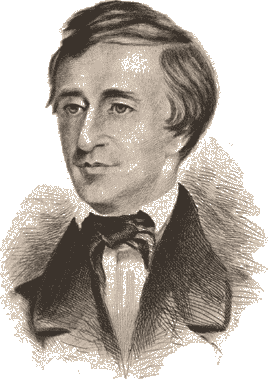I wrote that I think two key factors are vision and focus. And I think I am lacking a little on both counts. Vision, according to Jeff Myers, means “being able to see further down the road than those around you.” I guess that’s true but it’s also being able to communicate what you see as the future of your organization's efforts and engage those you are leading, so that they want to reach the same goals.
Focus might be similar to the flywheel concept I just mentioned. When you identify your guiding vision, you work with intensity and purpose to achieve your goals.
An effective leader delegates his responsibilities. “Every time you delegate, you open opportunities for others to be successful. Delegating in a timely manner to people who are eager to run with the ball breeds a kind of synergy of success” (Tomas Morales, provost, Cal Poly – Pomona).
Two items that are related to each other are honesty and transparency. Two of my favorite quotes illustrate this . . .
“Credibility is one of the hardest attributes to earn. And it is the most fragile of human qualities. It is earned minute by minute, hour by hour, month by month, year by year. But it can be lost in very short order if not attended to. We are willing to forgive a few minor transgressions, a slip of the tongue, a misspoken word, a careless act. But there comes a time when enough is enough. And when leaders have used up all their credibility, they will find that it is nearly impossible to earn it back” (The Leadership Challenge, p. 25, by James Kouzes and Barry Posner).
“Honesty in the workplace can’t be regulated. It has to be encouraged by leaders who themselves are honest and willing to admit their failures” (Carol Hymowitz, journalist).
“. . . evasions of the truth do nobody any good. The person is not made to face up to his or her
d
 eficiencies and mistakes. Thus the person does not know what to change for the better if there are to be successes in the future. The truth, in a situation like this, is likely to leave you being disliked by the person terminated, but being liked is not as important as being kind. And it is not kind to deny a person the truth that could help him or her avoid future hurts and maybe a lifetime of failure.” (Tony Campolo, Everything You’ve Heard is Wrong, p. 64) With regard to this statement, I’m reminded of a time early in my career as a director when Sheldon Nord confronted me concerning what was, really, a large part of how I expressed my personality but was also impeding my success at work. In other words, he struck at something that was very central to who I was. It was not easy for him nor for me—I fought depression for a time afterwards—but he did me a big favor by bringing the harsh reality to my attention.
eficiencies and mistakes. Thus the person does not know what to change for the better if there are to be successes in the future. The truth, in a situation like this, is likely to leave you being disliked by the person terminated, but being liked is not as important as being kind. And it is not kind to deny a person the truth that could help him or her avoid future hurts and maybe a lifetime of failure.” (Tony Campolo, Everything You’ve Heard is Wrong, p. 64) With regard to this statement, I’m reminded of a time early in my career as a director when Sheldon Nord confronted me concerning what was, really, a large part of how I expressed my personality but was also impeding my success at work. In other words, he struck at something that was very central to who I was. It was not easy for him nor for me—I fought depression for a time afterwards—but he did me a big favor by bringing the harsh reality to my attention.A good leader is a good listener. Thoreau said “The greatest compliment that was ever paid me was when one asked me what I thought, and attended to my answer” (Life Without Principle).
 Furthermore, a leader is characterized by a willingness to listen to varying viewpoints and to encourage discussion. Ashleigh Brilliant joked, “The more we disagree, the more chance there is that at least one of us is right.” I learned a long time ago that if I wasn’t comfortable sharing information about an idea or project with others, my discomfort was a strong indicator that my plan was not a good one.
Furthermore, a leader is characterized by a willingness to listen to varying viewpoints and to encourage discussion. Ashleigh Brilliant joked, “The more we disagree, the more chance there is that at least one of us is right.” I learned a long time ago that if I wasn’t comfortable sharing information about an idea or project with others, my discomfort was a strong indicator that my plan was not a good one.Going back to my earlier comment about consensus and decision making, even after you have gathered insights from others, you need to be willing and able to make whatever all you think is best. Billy Wilder said, “Trust your instincts. Your mistakes might as well be your own instead of someone else’s.”
Finally, the last item that comes to mind is that a leader does whatever it takes to get the job done. He or she has a good work ethic. “If we dodge our responsibilities, we may be hit with the consequences” (Kamau).
No comments:
Post a Comment